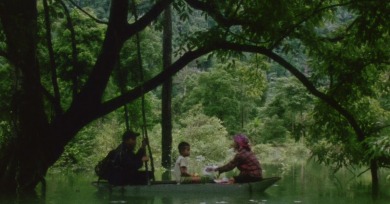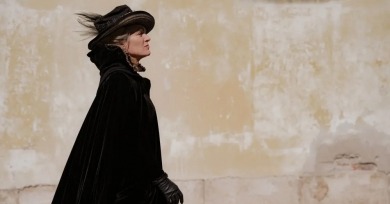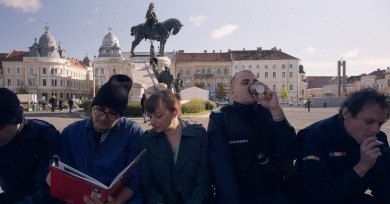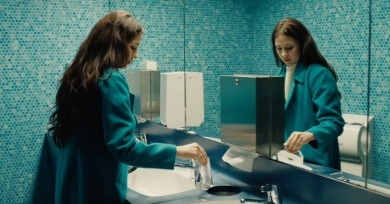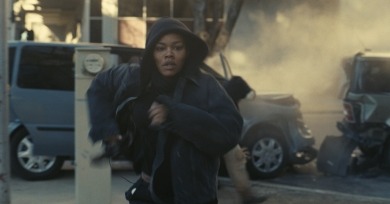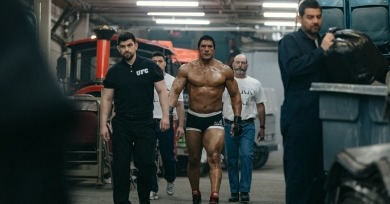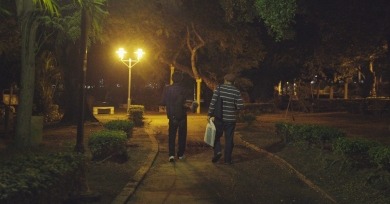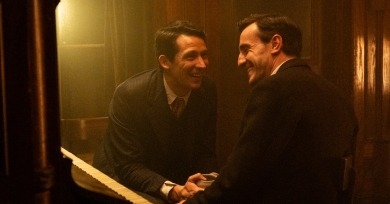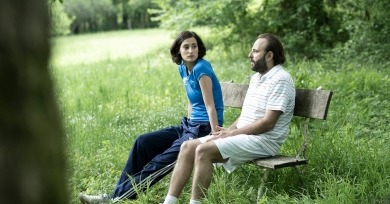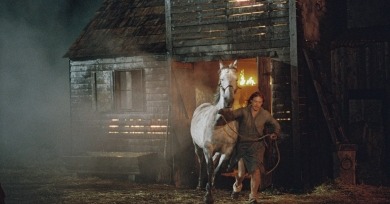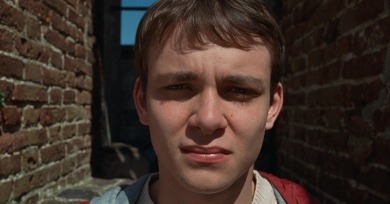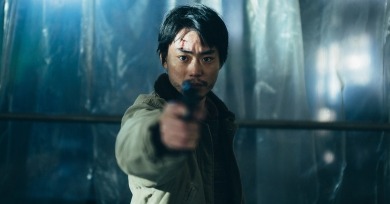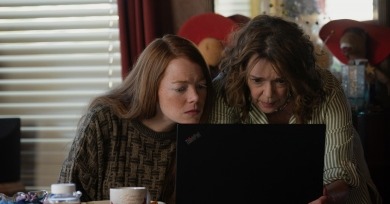Reviews
Shot on vintage Bolex cameras, the richly textured 16mm images emerge with the lightness of simplicity, which so charmingly mirrors the candid vignettes they capture.
Frailty and malice would be the simplest emotions to prescribe to a figure like Eleanora Duse, but Bruni Tedeschi opts for an unstoppable, pathetic hysteria. She finds wild variations on Duse’s foolishness that are, at turns, surprising, delightful, and haunting. There is a depth to her artifice.
For these characters, the past and the faraway become convenient displacements for their surrounding horrors. They ramble incoherently about Stalin and Putin, but they cannot seem to face their own regime—not even rhetorically.
Across its runtime, The Currents refuses straightforward answers to its questions. In the aftermath of her icy plunge, which she conceals from her husband and daughter, Lina becomes physically repelled by the sound and touch of flowing water.
One Battle After Another unapologetically addresses the completely inexcusable injustices of contemporary American life while being incredibly funny, exciting, suspenseful, and poignant, particularly about the act of parenting a biracial child.
Johnson embodies this ethos from his shoulders to his thighs, but especially his eyes. When someone is on heroin, their eyes glaze over but do not defocus. It is not about the drowsy escape, it is the pleasure of balancing, for a moment, the mundane cruelties of life against an unstoppable contentment.
Where is the line between performance and reality when you are instructed to play yourself and not just any version, but your current version at the present moment? As the production progresses, the two men develop an independent friendship alongside their ideas about what this film is and how they should best live their lives.
The trouble with The History of Sound is not that its makers cannot imagine or depict these characters’ erotic bliss, however short-lived, in anything other than the most conservative terms, but that Hermanus, screenwriter Shattuck, and their leading men offer so little of conviction in its stead.
Anyone privileged enough not to work in the public-facing service economy was compelled to generate new at-home routines during the early days of COVID. More so than its (scant few) pandemic-set contemporaries, Suspended Time acutely understands how previously occupied mental space in adults became vacant for the first time.
The making of the play provides the dramatic scaffolding for the unfolding of life, but both the skit and the college life that surrounds it are presented as spontaneous, oblique, and devastating in their elisions.
Her first English-language feature, the film relinquishes some of Athina Rachel Tsangari’s steadily calamitous humor and Greek locales, while preserving her institutional critiques of capitalism and chauvinism.
Diciannove, the first film by Giovanni Tortorici, who is not yet out his twenties, speaks to the psychic undercurrents of our fresh Hell, while also carrying on a dialogue with the traditions of European romanticism in literature and film.
Like Pulse, the film’s conceit imagines a nightmare scenario in which an aspect of technologically modulated human interaction—here, online harassment—breaches the borders of reality.
